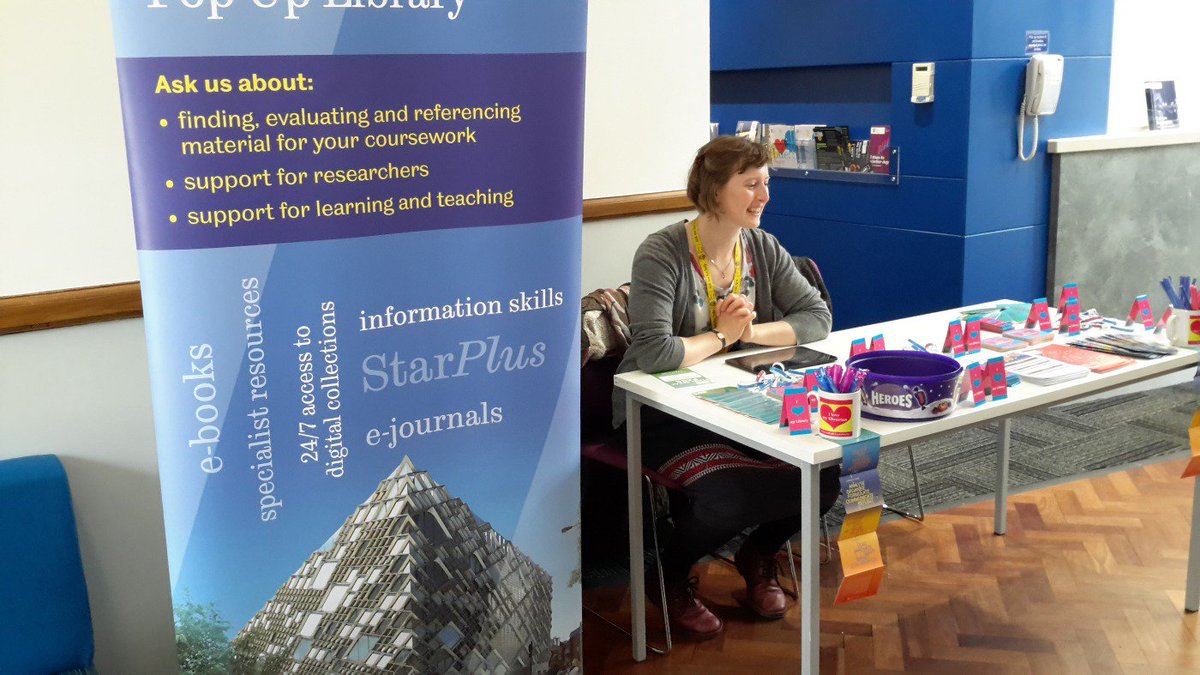Hello to all our economics and journalism students! Our Pop-Up Library will be in the foyer at 9 Mappin Street tomorrow Thursday 28th April 12-2pm
We’ll be giving out snacks and other freebies, and answering your questions about library resources and support for learning and research.
We’ll be giving out snacks and other freebies, and answering your questions about library resources and support for learning and research.
Look out for the Pop-Up Library coming to your department soon!

Announcements about future Pop-Up Library sessions will be made on this blog and the @SocSciLibrarian Twitter account. We’d love to hear your thoughts on when and where you would like to see the next one #popuplib




